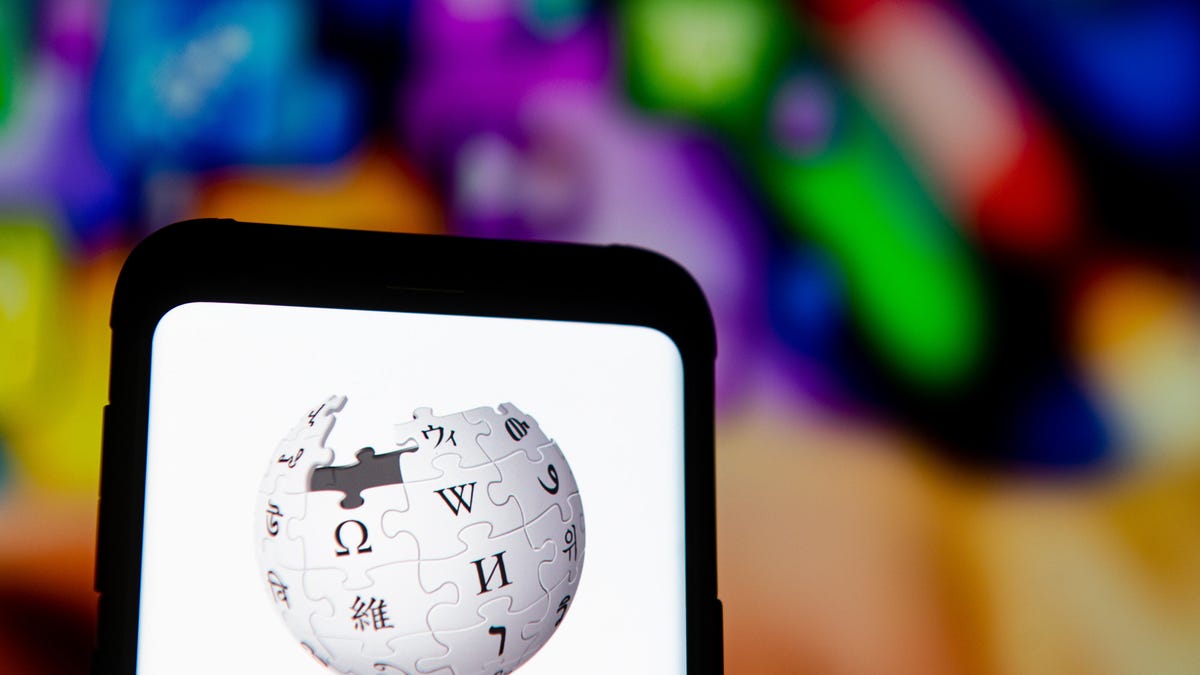At 20, Wikipedia has become a refuge from Big Tech's misinformation
The online encyclopedia is an unlikely beacon of reliability.

Wikipedia celebrates its 20th anniversary.
As Election Day turned into Election Week in the US, Facebook , Twitter and YouTube found themselves trying to avert disaster. President Donald Trump had declared victory and baselessly alleged election fraud, even though battleground states continued to count mail-in ballots. The president's supporters ricocheted his bogus claims across social media.
On Wikipedia, however, the 2020 US Presidential Election page was locked like a fortress. The race remained uncalled on the page until news outlets declared a winner the following Saturday. The success was partly the result of a disinformation task force assembled by the Wikimedia Foundation, the nonprofit behind Wikipedia.
Though all major tech platforms prepared feverishly for the election, the lack of scandal on Wikipedia during the US vote underscored what the website has come to stand for: a functioning open internet. By contrast, the Big Tech platforms have been a mess of misinformation despite their engineering resources and deep pockets.
"Wikipedia is one of the greatest collective acts in human history," Ryan Merkley, chief of staff at the Wikimedia Foundation, said in an interview. He's referring to the website's army of hundreds of thousands of volunteers who edit its pages and keep them up to date. "It's transparent and accountable."
Friday marks Wikipedia's 20th anniversary. The website's birthday is a reminder of its durability during a particularly chaotic time for both the internet and the real world. Pro-Trump extremists have waged an insurrection at the US Capitol that was largely planned online. Rioters were goaded by the president and far-right figures who used Twitter, Facebook and YouTube to sow seeds of mistrust for years.
In the days since the attack, social platforms have been seared by a reckoning. Facebook, YouTube and Twitter have all reined in Trump in some fashion, with Twitter banning him permanently. Facebook is taking down posts that use the rallying cry "stop the steal," YouTube has banned former Trump advisor Steve Bannon's podcast, and Twitter has purged more than 70,000 accounts of QAnon devotees, who baselessly believe the government is run by a cabal of Satan-worshipping sex traffickers.
Wikipedia isn't perfect. Its pages are prone to vandalism and the site is commonly the target of pranks and infighting among volunteers. Despite its legions of page editors, inaccuracies can still show up in articles. But failures on Wikipedia don't put democracy at peril. The online encyclopedia's community is "better poised to offer fact-checking than mainstream and social media," the Columbia Journalism Review wrote on Thursday.
Founded two decades ago by the businessman Jimmy Wales, Wikipedia has exploded across the world. The network has more than 55 million pages in more than 300 languages. It had record traffic last year, with 15 billion visits a month, Merkley said. It's the 13th most popular site on the internet, according to the web ranking firm Alexa.
"In a world where information is increasingly commoditized, Wikipedia's model has always been based on the belief that knowledge belongs to all humans," Wales said in a statement. "Wikipedia forces us to step outside of our echo chambers and contend with what a shared understanding of the world could really look like."
Once considered a joke because anyone on the web can edit its pages, Wikipedia has built up a surprising amount of authority through the years. Google uses snippets from Wikipedia directly in its search results. YouTube, owned by Google, links to Wikipedia pages in its information panels, which are short blurbs that appear under false or misleading videos as part of YouTube's effort to debunk misinformation. Voice assistants like Alexa and Siri sometimes recite Wikipedia passages when people ask them questions.
"It's been demonstrated time and time again that Wikipedia does a really good job. They're well-curated and well-controlled," said UC Berkeley School of Information professor Coye Cheshire, who's researched Wikipedia since its early days. "It's more trusted today because they've shown they're trustworthy."
Wikipedia avoids some of the pitfalls of Facebook, Twitter and YouTube because it isn't ad supported, said Merkley. That means the site doesn't have targeted algorithms aimed at boosting engagement. "Our incentive is for people to come and find the information they were seeking," he said. "Not to keep them there as long as possible to present them with more."
So while the big social platforms faced discord in the wake of the election, Wikipedia was able to lay low in relative calm. It's a good thing, too. The 2020 US Presidential Election page was, unsurprisingly, among the massive website's most popular pages of the year.
"Wikipedia didn't set out to be a tool combating disinformation," Cheshire said. "But that's the great societal benefit."

